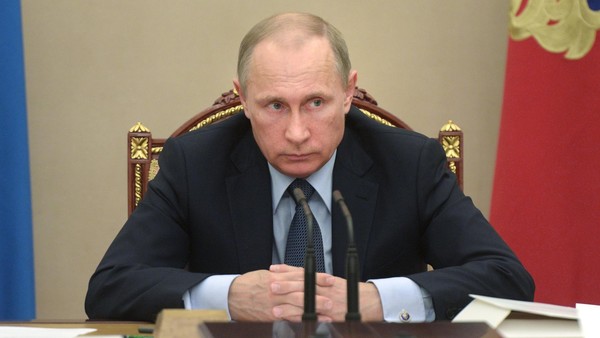Financial Times, via LOS on Facebook
[JB note: A very thin historical analysis. But granted the author is writing for a general audience.]
Moscow is not a rising revolutionary force but one seeking to restore power, writes Thomas Graham
The west acts as if it had a Vladimir Putin problem. In fact it has a Russia problem. The Russian president stands within a long tradition of Russian thinking. His departure would fix nothing. Any plausible successor would pursue a similar course, if perhaps with a little less machismo.
The Russia problem is not new. It emerged 200 years ago [JB note: What about Catherine the Great and her important role in European politics?], at the end of the Napoleonic period, with the opening up of what we would today call a values gap. In the 19th century Russia maintained an autocratic regime as Europe moved towards liberal democracy [JB - Germany under Bismarck? A liberal democracy?].
Yet Russia remained a great power, essential to European security. How to protect Europe in the presence of a powerful state that is alien in worldview? That was the problem then, as now.
European states seek security in balance; Russia seeks it in strategic depth [JB - superficial, "Kissinger-sounding" historical [hysterical?] generalization]. That view grows out of its location on the vast, nearly featureless great Eurasian plain [JB - How about presenting that statement to the surviving local/native peoples living in that "featureless plain"?], across which armies have moved with ease [JB -- Yes, I guess the Mongols did; why? Did they feel "threatened" too?].
Historically, Russia has pushed its borders outward, as far away as possible from its heartland [JB - But what about the European empires/vampires: British, French, Spanish -- did they not push their borders "outward" And what about Nazi Germany, considered "brutal" by Europeans, since they had to endure it themselves?]. It did not stop when it reached defensible physical borders, but only when it ran into powerful countervailing states. Where the west saw imperialism, Moscow saw the erection of defences.
Over time, resistance from the Germanic powers in the west, Great Britain and then the US in the south, and China and Japan in the east, came to define Russia’s zone of security as north central Eurasia, the former Soviet space.
For Moscow, states there face a choice not between independence and Russian domination, but between domination by Russia or a rival. That struggle,
Moscow believes, is playing out in Ukraine.
Moscow believes, is playing out in Ukraine.
Also out of security concerns, Russia has opposed the domination of Europe by a single power [JB -- but isn't that the very "balance" the author says is not part of Russian strategic thinking?] and remains uncomfortable with greater European unity. The reason is easy to grasp: Russia can be the equal of Great Britain, France, or Germany, but it can never be the equal of a united Europe, which in population, wealth, and power would dwarf it as the US does today. Driving wedges between European states, and between Europe and the US, might forestall the emergence of a serious threat.
Russia’s fears are amplified by a sense of vulnerability. Its economy is stagnating, its technology is no longer cutting-edge, and outside forces — China, the west and radical Islam — are challenging it in the former Soviet space. The temptation is to act tough to cover up the doubts by, for example, flaunting nuclear capabilities.
After more than 20 years of hope that Russia could be brought into the West-led international order, the re-emergence of the Russia problem has shocked the west. But the threat is limited. This is not a rising revolutionary force [JB - when was it ever?] but a declining state seeking to restore its power]. It can be managed. [These policy proposals don't flow from the above "historical" analysis - JB] One way is to revitalise the European project. That means dealing vigorously with the issues fuelling anti-EU forces — the democratic deficit, immigration and inequality.
To be sure, steps such as a Nato presence in the Baltics and robust planning for hybrid-war contingencies are necessary, but the west needs to avoid over-militarising its response to what is largely a political challenge.
At the same time, more should be done to help Ukraine repair its economy and build a competent state as a barrier to Russia’s assault on European norms and unity.
Yet containment will not work in our globalised, increasingly multipolar world, as it did during the cold war. The west cannot contain one of the world’s largest economies, and it is geopolitical malfeasance to weaken unduly a power critical to the equilibrium we hope to create out of today’s turbulence, particularly in Asia.
The hard truth is that Ukraine cannot be rebuilt without Russia [JB- True enough. But what "Ukraine" is the author talking about -- "the Ukraine SSR" or an evolving post-Soviet space known as "Ukraine?"]. It is simply too reliant on Russia economically, and Russia has too many levers of influence inside Ukraine, for it to be otherwise. Containment has to be leavened with accommodation. Finding the right balance is the challenge.
The writer is a former senior director for Russia on the US National Security Council staff


No comments:
Post a Comment